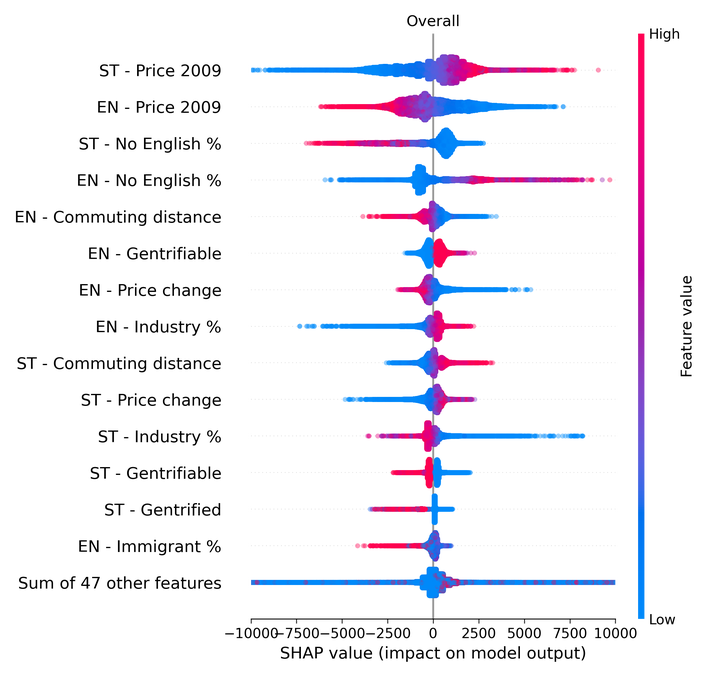Neighbourhood Attainment of Immigrant Minorities in England: Escaping Poverty but not Air Pollution?

Abstract
Immigrant minorities in England experience severe disadvantages in economic deprivation and air pollution at their place of residence. Although they have experienced improvements in relative income deprivation over the past decade, immigrant minorities still reside in most polluted polluted areas. This project connects individual respondents of the UKHLS panel to neighbourhood characteristics from 2009 to 2019, and tests several theoretical mechanisms of neighbourhood attainment. Results contradict explanations based on diverging perceptions and preferences, as immigrants express similar wishes to move after quality changes in a neighbourhood. Moreover, moving substantially improves the relative neighbourhood deprivation of immigrant minorities. We use machine learning techniques (boosted regression tree ensembles and Shapley Explanation values) for an explorative analysis of the most important contributors to individual neighbourhood changes. Results indicate that especially moves out of ethnic enclaves improve the neighbourhood deprivation of immigrants. For improvement in air pollution, minorities would need to move out of densely populated metropolitan areas. These moves to rural areas remain however rare - which is also owed to the geographical distance of clean rural areas and polluted inner-city neighbourhoods.